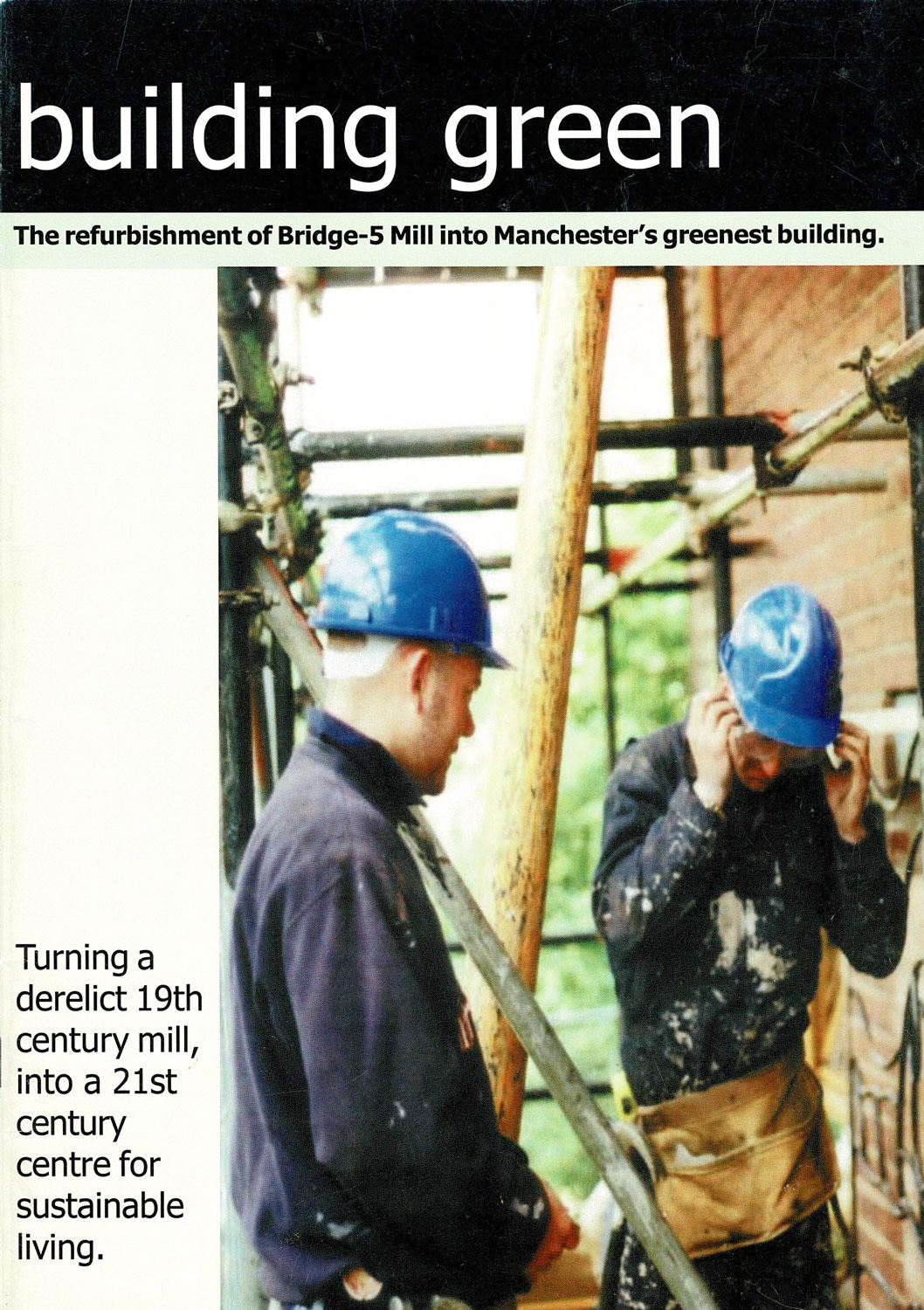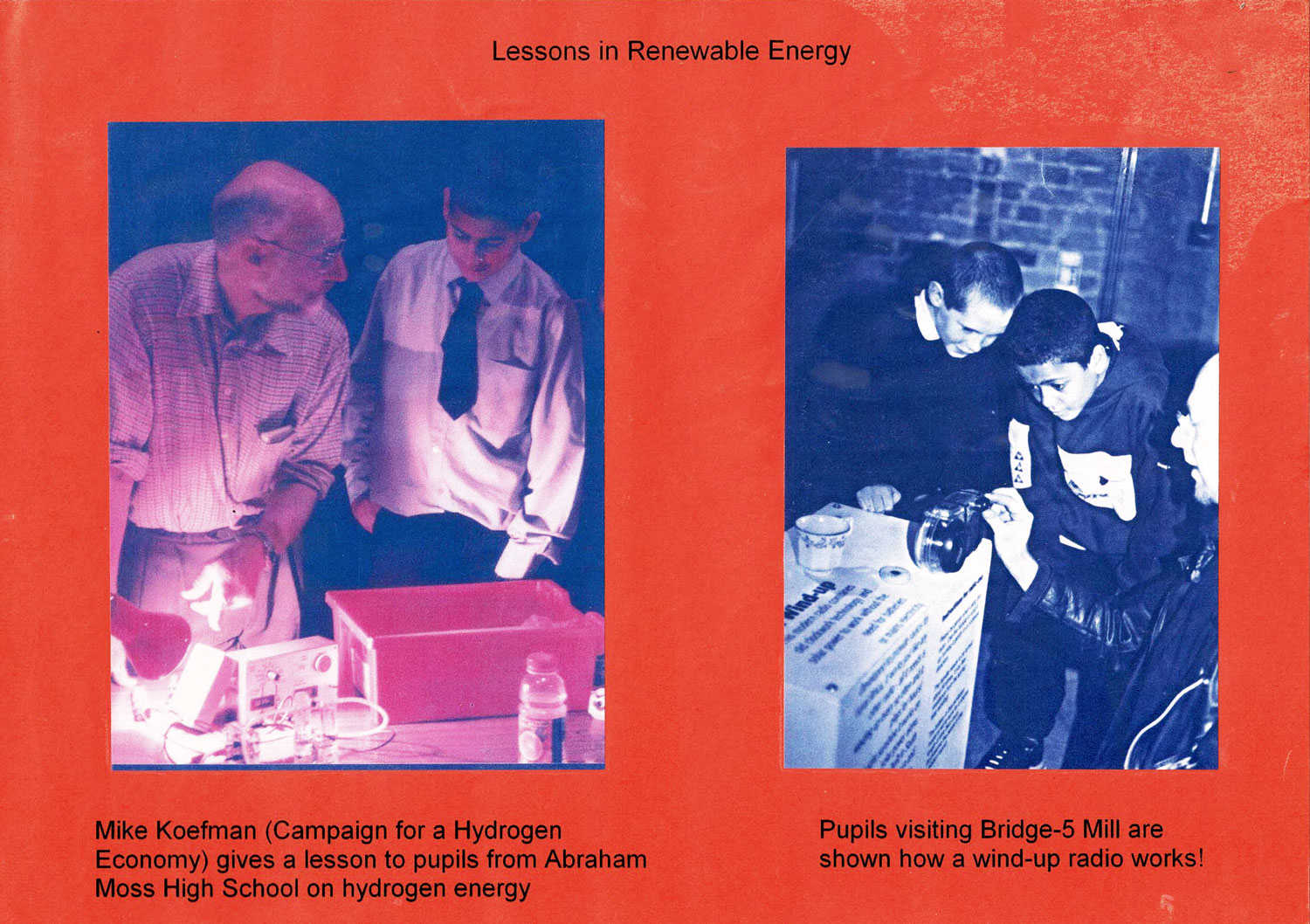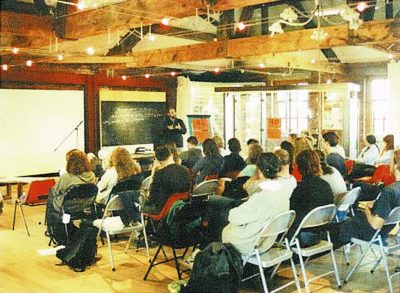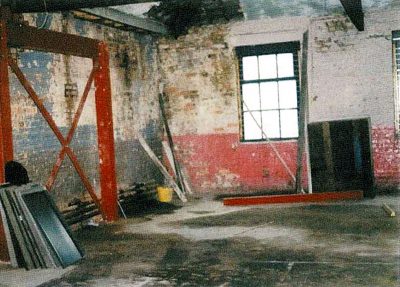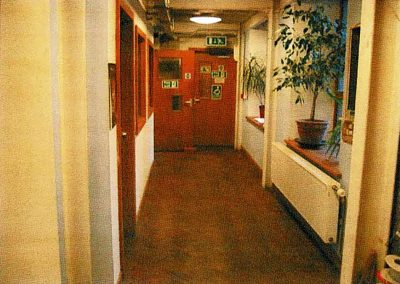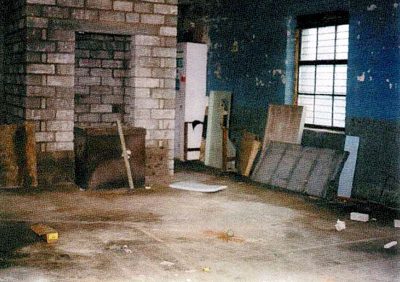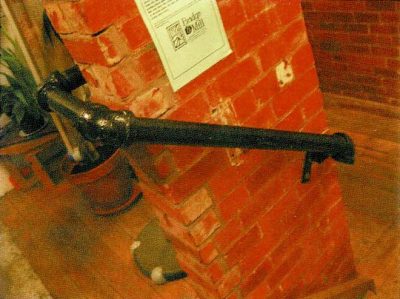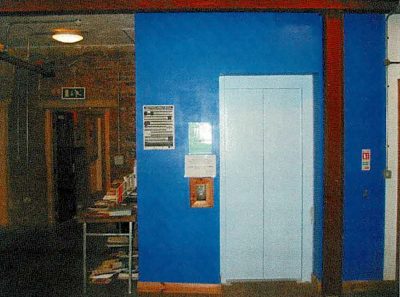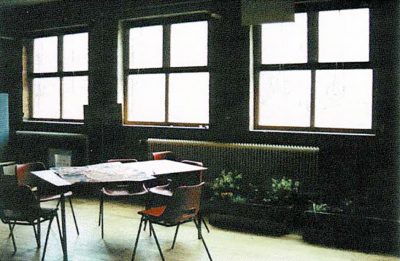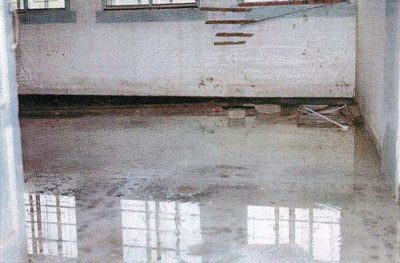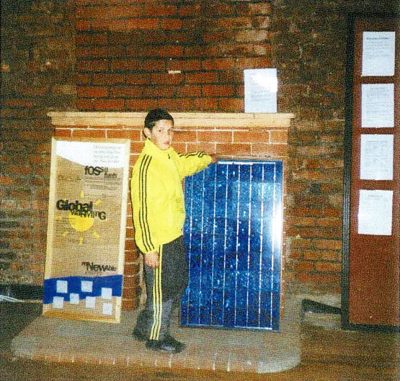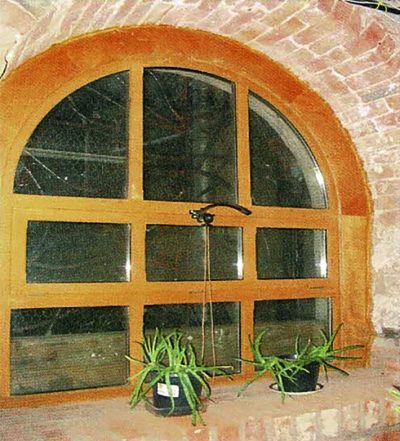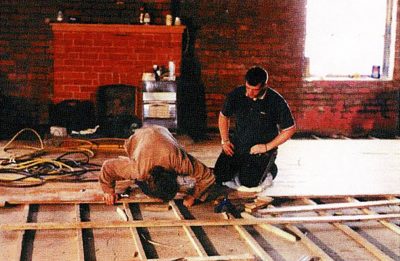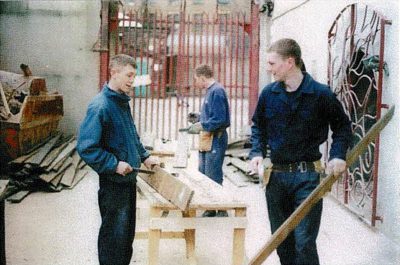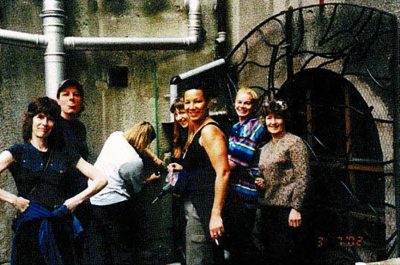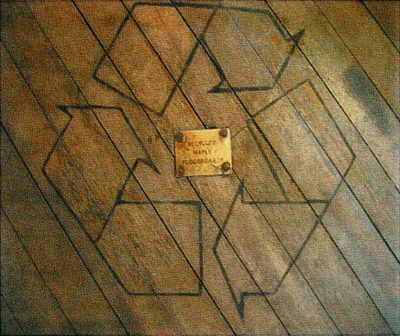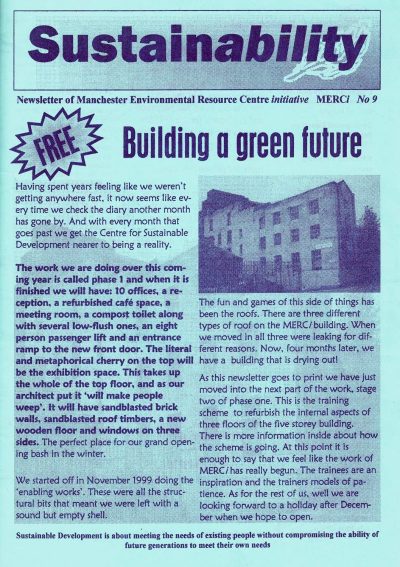About us
Bridge 5 Mill is a characterful and uniquely sustainable mill on the edge of Ancoats. We provide affordable workspaces, flexible event spaces, and services to support diverse social change projects and organisations. We also deliver our own community and cultural events and facilitate a network of changemakers.
Our Victorian silk mill on the Ashton Canal was sustainably refurbished in 2001 by a dedicated group of people who had a vision to create a hub and resource centre for groups, organisations, and individuals working on environmental and social issues, taking action for change.
We are part of the charity Fairfield Environment Trust, and together with our sister organisations The Kindling Trust and Veg Box People, we work to deliver radical solutions to environmental and social issues.
Sustainability
Bridge 5 Mill was refurbished using sustainable building practices, and as many eco-friendly and recycled materials as possible. Some repurposed items include a piece of slate that was once the top of a snooker table, back in the days of the mill being used as Ancoats Lads Club, and our bins are made from leftover metal from the roof of the Lowry Theatre in Salford. When opened, Bridge 5 Mill was recognised as one of Manchester’s most sustainable building and awarded most energy efficient building.
Sustainability is at the forefront of our operations; we are a vegetarian building and purchase goods from ethical and sustainable sources, including our energy. Our recycling stations include compost bins and ban single use plastics from events. We use eco-friendly cleaning products and continuously work to improve our practices. Our solar panels and water reduction solutions help us reduce our impact however we recognise there is more to be done. We review and assess our reduction, optimisation and production plans regularly and aim to improve our energy saving capacities.
ethical & social change
We help to build an equitable, inclusive and diverse network of organisations and communities working towards positive social change, by providing dedicated work and event spaces, giving opportunities to grassroot projects, and creating a safe space for people to thrive, connect and enjoy. We encourage public involvment in projects from our changemakers as well as collaborations and resource sharing between organisations. We support through procurement and collaborations companies who are real living wage employers, are not for profit, independant and promote fairtrade and sustainable practices. By doing so, and leading by example, we aim to promote an alternative economy that benefit and strengthen communities.
We welcome collaborations and suggestions on how we can use and improve our building as an asset to more people and communities across Greater Manchester. We are a space of learning and growing, get in touch here.
Our History
Bridge 5 Mill was established and refurbished by a dedicated group of people who had a vision for a centre in Manchester that could be a hub and resource for groups, organisations and individuals working on environmental and social issues. The mill would serve as both a base and an example of these ideas in action. Two of those people, Helen Woodcock and Chris Walsh, are still based at the mill and involved to this day. The original project was called the Manchester Environmental Resource Centre Initiative (MERCi) and was established in 1996 as an independent charity.
MERCi found and purchased Bridge 5 Mill and refurbished it with the help of grants from the European Regional Development Fund, a private trust, The National Lottery Community Fund and the Esme Fairburn Trust, and later the Tudor Trust and Comic Relief.
The mill was refurbished using many reclaimed and recycled materials, eco paints, water saving measures and low energy fittings (and no PVC!). It also involved a range of people with different skills and backgrounds, such as New Deal apprentices from the local community, participants of ‘Building on Equality’ – a green construction course for lone parent women – and many volunteers, all of whom were led by professional craftspeople who shared their knowledge and expertise. When it opened, Bridge 5 Mill was one of Manchester’s most sustainable buildings, and Manchester Civic Society acknowledged this in 2001 when it won the award for Manchester’s most energy efficient building. After the initial refurbishment, MERCi then focused on three key areas of project work: community, education and enterprise.

Sustainability at Bridge 5 Mill
Bridge 5 Mill was refurbished using as many sustainable building practices and materials as possible. In line with this ethos there are many recycled and repurposed items around the mill; our reception desk, for instance, is a piece of slate that was once the top of a snooker table, back in the days of the mill being used as Ancoats Lads Club, and our bins are made from leftover metal from the roof of the Lowry Theatre in Salford. With sustainability in mind, we also manage the day-to-day running of the mill with our environmental impact always in mind, and we regularly implement greener, more efficient methods to our way of getting things done. You can find out more about how we do this in our Ethics & Sustainability policy below.
Ethics & Sustainability Policy
- We help to build an equitable, inclusive and diverse network of organisations and communities working towards positive social change that benefits all citizens of Greater Manchester (and beyond).
- We provide space and resources for organisations, groups, communities and movements to come together to create change.
- We create a safer space for people to thrive, connect and enjoy, and to strengthen the network of positive social change makers.
- We encourage public involvement and civic engagement with the projects organised by our changemakers.
- We embed ourselves in the local area by offering our space as an asset for the community to use, hosting educational events, acting as a local veg pick up point, and listening to what the community needs before putting it into action.
- We ensure that our building is using as many sustainable initiatives as possible – solar panels, power saving techniques, recycling facilities, etc. – we lead by example to encourage our users to do the same.
- We encourage our users and Changemakers to carry out sustainable practices as much as possible within the building – cycling to work, avoiding meat & dairy products, recycling, power saving, etc.
- We support, as much as possible through our procurement, companies who pay the living wage, are small & independent, are fairtrade, are sustainable – see our ethical buying policy here. By working in solidarity with others, we hope to create an example of an alternative economy.
- We welcome ideas and suggestions on how we can use and improve the space to benefit more people and communities across Greater Manchester – just get in touch using the contact form on our website. We are a space of learning and growing.


